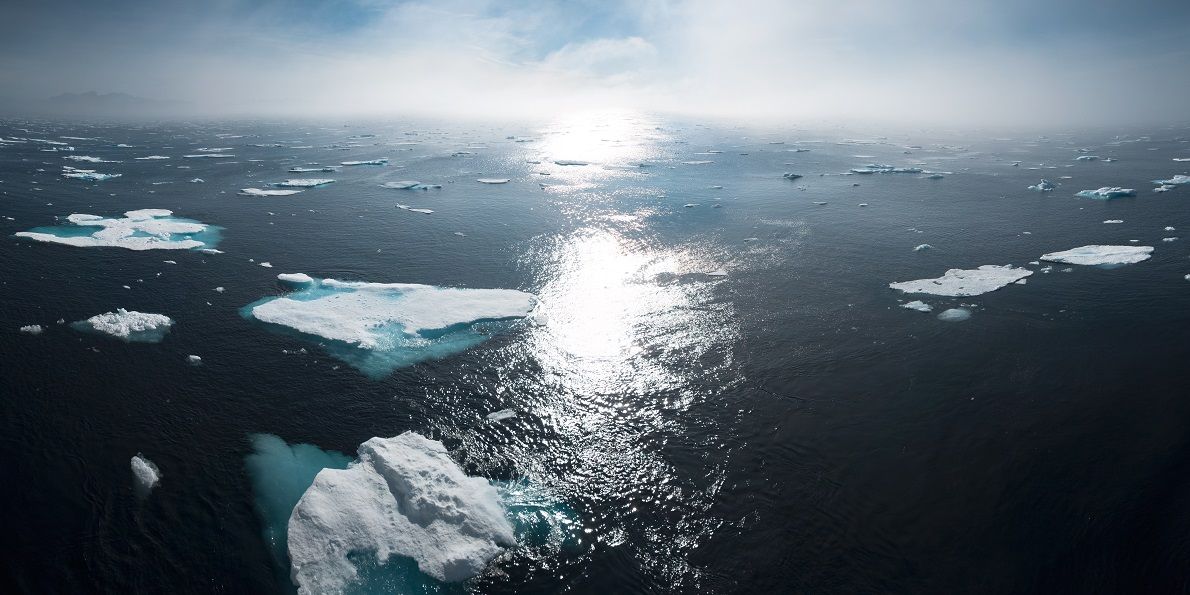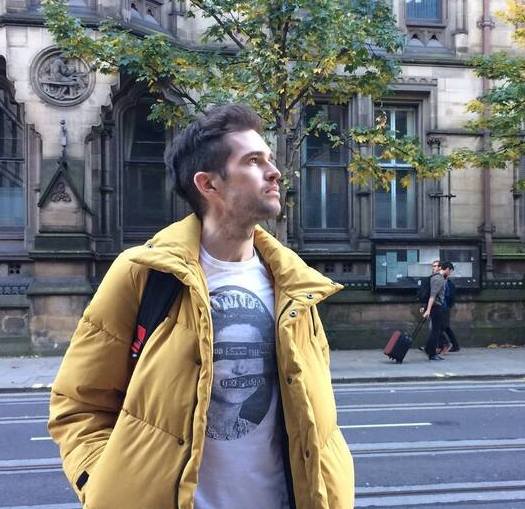Confused about climate change? Many people are. Are humans to blame? Is nature to blame? Where did it even come from?
Moreover, is it even real?
For many in 2021, these are super important questions to be asking as climate change is (finally, some would say) well and truly on the agenda. The problem is that finding answers isn’t easy. Your neighbor says one thing, and your friend says another. Government A says this, and Government B says that.
So how do we cut through the noise?
In this article, we are going to get to the point by uncovering what climate change is in layman’s terms. We’ll take a look at what causes it, why some people doubt it’s real, what the world is doing to improve the situation… and we’ll also bust a few myths.
Let’s dive in!
What is climate change?
Put as simply as possible, climate change is just a variation in the normal climate conditions. If, for example, temperature changes over a long period of time and goes hotter or colder than usual or expected, that’s climate change in action.
Or, maybe one region of the earth experiences more or less rainfall than usual over a long period of time. That’s also climate change in action.
What’s most important is that we clearly define climate. See, the weather is what’s happening right now as you look outside your window. If it was raining yesterday but is bright and sunny today, that’s nothing to do with climate change. That’s just the weather being its bizarre old self!
Climate, on the other hand, is weather conditions over a long period of time. And it’s for this reason that climate change is such an important issue: if the earth’s surface is clearly warming up over a certain time period, that isn’t normal and needs to be addressed.
What causes climate change?
If you’ve heard of the greenhouse gas effect, you already have some knowledge of why climate change is happening.
The greenhouse gas effect (or rising emissions) is when gases such as methane and carbon dioxide prevent heat from getting out of the earth’s atmosphere. When this happens, heat becomes trapped and the climate warms up.

The greenhouse gas effect doesn’t just happen, however: it’s caused by human activity. For example, transport, such as cars, planes, and trains, are contributing factors behind climate change, as is our continued burning of fuel in order to power our factories.
Deforestation and livestock farming are more human activities that cause greenhouse gases. These human activities lead to desertification, which directly contributes to climate change.
This way, the atmosphere changes, and more and more heat gets trapped. Over time, the earth warms up considerably.
How does climate change affect me? Why should I care?
It’s easy to think about warmer earth and ask, “Why’s that such a problem?” Especially if we live somewhere cold!
And you wouldn’t be the only person who thinks like that. When any of us first heard about climate change a few years ago, I hardly doubt we considered how it would impact us personally.
The funny thing is that climate change is probably already affecting you.
One way to look at it is like this: Fossil fuel emissions, such as those from vehicles, aren’t clean. And while these set in motion the greenhouse gas effect, they also get into your lungs where they can cause all kinds of respiratory diseases.
“Mmmmkay, I get that dirty fossil fuels can make me ill. But what about climate change?”
Well, according to research, increases in temperature over the long term can cause greater mental health problems in all of us.
Moving on from health, let’s consider the impact on something closer to home — such as our home itself. Sea levels are rising all the time, and when sea levels rise and rise and rise, certain locations and homes will be submerged (some already are). Forever.
Before that happens, those who live near the coast, or even just a little bit near to the coast, will have to abandon their homes. For many, that will mean leaving behind everything they treasure.
Then there’s food. According to experts, climate change is actually causing our fruits and veggies to become less nutritious. That’s the last thing we need!

Why do some people doubt it?
95% of active climate change researchers assert that climate change is real, and that humans have caused it.
So why do some people doubt it? Why do, for example, some parents, friends, and even politicians (like Donald Trump) deny it?
There are many, many reasons why people would doubt or even flat-out deny something that’s right before their eyes, and there have been just as many books — such as Predictably Irrational — that seek to explain our mistrusting nature in the face of glaring facts.
When it comes to climate change, the reasons range from the outrageous to the more understandable. Some doubt or deny it simply based on their own experiences — “I live in Wisconsin and trust me, it’s not getting any warmer!” — while others claim there’s no substantial evidence that proves climate change is real.
It’s important to note that often politicians’ words are a reflection of special interests of whom they serve — instead of the people’s common interests.

It doesn’t help that, while a number of scientists and researchers agree that human activity has caused climate change, a small number of scientists and researchers claim that this isn’t true. They might say that climate change is real but that its causes are unknown. While they are a minority, their doubt leaves room for more doubt among others.
What are we doing to improve the situation?
First world countries like the U.S. and the UK have already reduced their carbon footprint. They’re still way off their greenhouse gas reduction targets, but they’ve made a start. Canada, for example, introduced a carbon tax in 2018, while the EU has environmental policies that, once fully in place, should bring emissions down by 40% by the end of this year. Russia, a nation often mistrusting of the existence of climate change, is now imposing a carbon tax, too.
Many businesses worldwide are shifting to renewable energy sources, too, while more and more companies — small and large — are becoming more green-minded.
What can I personally do?
The first thing you should do is not panic. For some, climate change has apocalyptic connotations that cause hyper-anxiety and a sense of impending doom and dread. But remaining calm is important.
One thing you can do is help raise more awareness of climate change. For example, you could join a protest group like Extinction Rebellion — which has been described by environmentalist Chris Packer as “the first real hope of making a difference.” Other protest and activist groups include Rogue Climate and Fridays For Future.
If going to protests isn’t your kind of thing, how about you use your skills to raise awareness in another way? For example, if you have rudimentary (or even outstanding!) writing skills, why not write articles on the subject? Maybe you could collaborate with others and create a newsletter or an online blog.
If, on the other hand, illustration is more your thing, how about you create posters and flyers that raise awareness? And if you’ve got a marketing background, maybe use it to help promote fledgling climate change blogs. You could also donate money to organizations and groups that are battling to improve the situation.
On a more personal level, there are small tweaks you can make to your lifestyle that can, in some way, improve the situation.
For example, you could get smarter with your diet. Start by using a climate change food calculator to figure out your diet’s carbon footprint before considering transitioning to a more sustainable diet, such as the vegan diet.
You could change your travel behavior, too, which means less air travel and car use.
Especially car use! For example, instead of driving to the supermarket that’s just a few blocks away, walk or bike there. It’s healthier, too.
Fun fact: as this report shows, most of us will use our car less but only if we’re sure that others are using their car less, too. Again, reducing your car usage will probably require you to just take the lead so that others around you will hopefully follow suit.

5 myths about climate change
Hopefully, we’ve cut through the fog a bit by now and created a more rounded picture of what climate change is. But before we go, here are 5 lingering myths about climate change:
- Climate change scientists just want the cash. And some still deny global warming! This is an old idea that promotes the idea that scientists are in some way ‘bent.’ Some indeed are, but there is a giant consensus about a positive correlation between carbon dioxide in the atmosphere and temperature. Since humans are causing more carbon dioxide, we are therefore obviously also affecting global temperatures.
- Climates have changed in the past, this is nothing new. Climate has for sure changed in the past, but it’s never changed so much due to human activity before.
- Climate change won’t affect us anyway. Folks can stay inside their little bubble on this one if they like, but it won’t do them any good. Climate change will eventually affect us all.
- Climate change isn’t real because the winters are still fricking cold where I am. That may be so, but this myth (which is often exacerbated by mainstream media) confuses weather with climate.
What are your thoughts on climate change? Let us know in the comments below!


